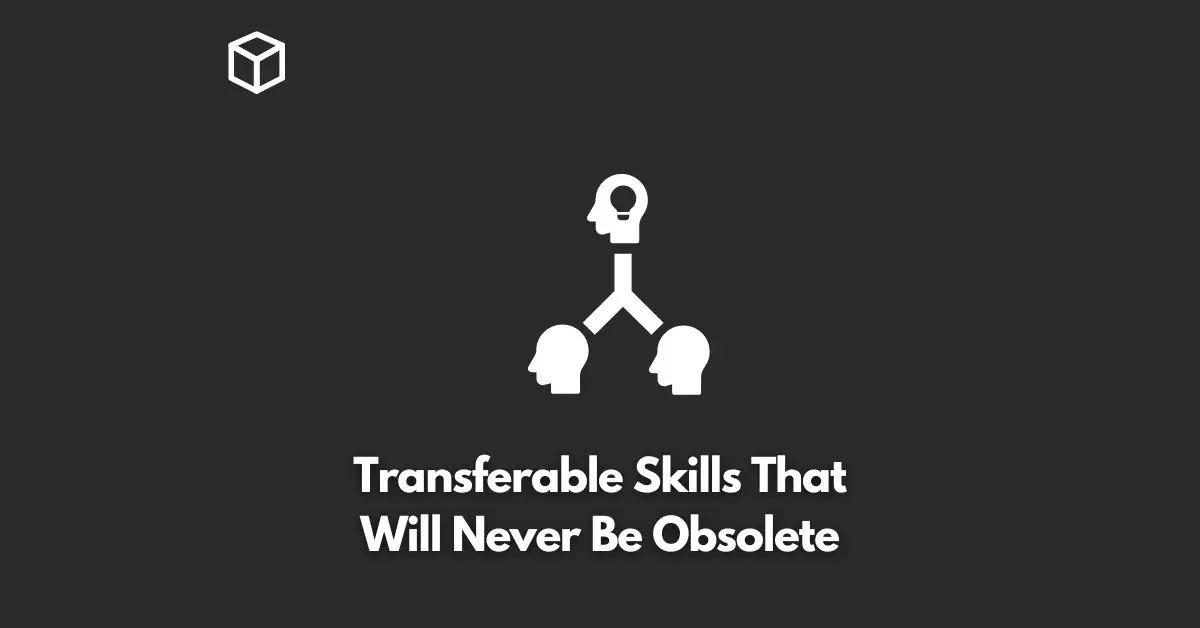In our rapidly evolving technological era, many traditional aspects of work are being replaced with new opportunities and roles, thereby leading to the expansion of diverse industries.
As businesses evolve and progress towards the future, we might encounter novel job titles such as robot designers, gene programmers, and replacement body part manufacturers.
But how will people transition into these future jobs that they have never even contemplated?
Understanding the concept of transferable skills is crucial in this context.
Transferable skills are skills that you’ve gained through any activity in your life — jobs, classes, projects, volunteer work, parenting, hobbies, sports, virtually anything that can be used in your next job or new career.
These skills will serve as the bridge for individuals to find themselves in roles they never imagined.
The nature of work itself is undergoing transformation.
As business futurologist Craig Rispin explains, we are witnessing a shift in the workforce towards project-style and contract work.
This shift is similar to the workings of Hollywood – where individuals work on a single project and, upon its completion, they market themselves for the next one.
This dynamic approach is gradually superseding the traditional 9 to 5 work model, ushering in an era of varied careers and opportunities.
Technological Revolution and Its Impact on Workforce
The revolution we are experiencing is not a novel occurrence.
The workforce has witnessed similar upheavals in the past as technology transformed the way we worked.
The advent of the printing press, for instance, relieved people of the painstaking job of manually copying books.
Post World War II, the arrival of computing eliminated numerous monotonous tasks.
Then, in the 1990s, the advent of the Internet catalyzed changes across almost all industries.
Here are some of the timeless transferable skills:
1. Leadership Skills
Leadership is more than just managing a team; it’s about guiding and inspiring others to achieve a common goal.
Take Richard Branson, for example. He capitalized on his leadership skills to run businesses across a diverse range of industries, from publishing and music to fashion and airlines.
Existing leadership skills can be applied to one-off projects at work or in personal pursuits.
2. Interpersonal Skills
Regardless of how dramatically the workforce changes, effective interpersonal skills remain indispensable.
Being able to communicate effectively, empathize with others, and establish lasting relationships can significantly enhance your professional prospects and personal growth.
3. Problem-Solving Skills
One common trait among successful leaders is their ability to focus on solutions rather than problems.
Take Elon Musk, for instance. He identified the traffic problem in Los Angeles and proposed an innovative solution – an elaborate system of tunnels beneath the city.
Problem-solving skills are, hence, an essential and invaluable asset that can ensure your future success if you continue to refine and develop them.
4. Creativity
You may perceive yourself as a rational individual with no knack for creativity, but the reality is that everyone has an inherent creative potential.
Consider the founders of Airbnb, Brian Chesky and Joe Gebbia. Unable to afford their rent, they invented Airbnb, an idea that revolutionized the hospitality industry.
Creativity is not confined to specific industries; it’s all about thinking outside the box.
5. Adaptability
In an era of rapid changes, adaptability is an essential skill.
Being open to learning new technologies, adjusting to changing work environments, and being able to handle multiple tasks simultaneously are all aspects of adaptability.
The pace of innovation will only increase in the future, making adaptability a crucial skill to master.
6. Emotional Intelligence
Emotional intelligence is the ability to understand and manage your emotions and those of others.
It involves empathy, self-awareness, self-regulation, and social skills.
In the future workplace, where automation may handle many cognitive tasks, emotional intelligence will become a distinguishing factor.
7. Time Management
Time management skills are crucial, whether you are operating a printing press or scheduling online articles or even managing robots that take care of scheduling.
Irrespective of the changing face of the workforce, time management will always be critical.
If deadlines and prioritizing tasks seem challenging, it might be beneficial to work on improving this skill.
Developing transferable skills should not be an overwhelming task. It is essential to understand that you already possess many of these skills.
To acquire more, start by drafting a “transferable skills development” plan and take small, consistent steps.
Regular review of your progress can ensure you stay on track and continue to enhance your skills portfolio.
Remember, transferable skills are not only beneficial for career transitions but also provide a strong foundation for personal development.
The ability to adapt, problem-solve, lead, and communicate will always be in demand, and mastering these skills will ensure that you remain relevant in the evolving world of work.




